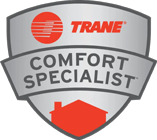What Are the Signs of a Dirty Furnace Filter You Should Never Ignore?
An imperative aspect of any homeowner’s responsibilities when it comes to their furnace is changing out the filter on a regular basis. Furnace filters are installed to help remove impurities from the air before they reach the inside of the furnace. This helps to protect your heating system and keep your family breathing healthy, clean air. If you notice any of the problems below, then it’s time to change out your dirty furnace filter. Poor Indoor Air Quality As your furnace filter starts to fill up with debris over time, it’s going to make it much harder for air to be forced through it. As the air throughout your house becomes more stagnant due to the lack of circulation, you’re going to notice that the quality of your air significantly suffers. Those who deal with allergies are more likely to notice the problem since they’ll experience more flare-ups than usual. Decreased Airflow When your furnace filter becomes completely full of debris, there’s not going to be as much air flowing throughout your ducting. When you put your hand up against the vent in your room, you may notice that there’s not as much air coming out of it as you’re...
View Article
